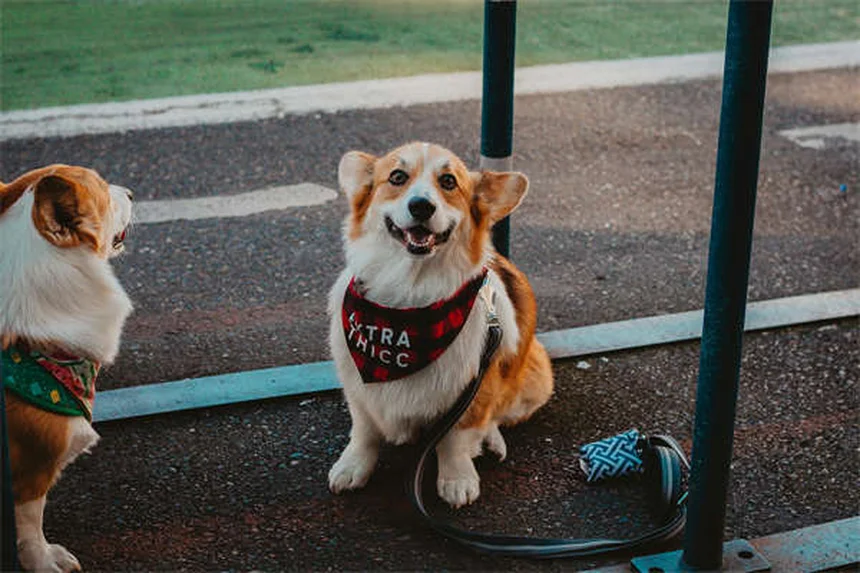Why can't my chinchilla have babies? The answer is: chinchilla infertility is more common than you think, affecting about 15% of these furry pets. As a chinchilla owner myself, I've learned that nutrition, genetics, and infections are the top culprits behind reproductive issues. Your chinchilla might be struggling because of something as simple as an imbalanced diet or as complex as genetic incompatibility with its mate.
Here's what you need to know - if your chinchilla shows zero interest in mating, has a dull coat, or seems lethargic, these could be red flags for infertility. The good news? Many cases can be prevented or managed with proper care. In this guide, we'll break down everything from spotting early symptoms to creating the perfect environment for reproductive health.
E.g. :Chinchilla Fur Slip: What It Is & How to Prevent It
- 1、Why Your Chinchilla Might Be Struggling With Infertility
- 2、The Science Behind Chinchilla Reproduction Challenges
- 3、Getting to the Bottom of the Problem
- 4、Living With an Infertile Chinchilla
- 5、Prevention Is Better Than Cure
- 6、Final Thoughts on Chinchilla Fertility
- 7、The Emotional Impact of Chinchilla Infertility
- 8、The Financial Side of Chinchilla Infertility
- 9、Alternative Paths to Chinchilla Parenthood
- 10、Long-Term Health Considerations
- 11、Community and Support Resources
- 12、FAQs
Why Your Chinchilla Might Be Struggling With Infertility
The Surprising Reasons Behind Chinchilla Infertility
Hey there chinchilla parents! Let's talk about something serious but often overlooked - infertility in our furry friends. Did you know that about 15% of pet chinchillas experience reproductive issues? That's right - and the causes might surprise you!
Here's the deal: Your chinchilla's inability to have babies could stem from multiple factors. We're talking about everything from what's in their food bowl to who they're dating in their cage. Nutrition plays a huge role - too much food makes them obese, while too little leaves them malnourished. And get this - even their family tree matters! Breeding two white or velvet-coated chinchillas together? That's like playing genetic roulette with their reproductive health.
Spotting the Warning Signs
How can you tell if your chinchilla is having fertility problems? Look for these red flags:
- Zero interest in romance (and we mean absolutely none!)
- That gorgeous coat looking dull and ragged
- More napping than usual (lethargy is a big clue)
- Funky smells or discharge down there
Ever seen your chinchilla turn down a potential mate? That's like a teenager refusing pizza - something's definitely wrong! These symptoms often creep up slowly, so keep those observant eyes peeled.
The Science Behind Chinchilla Reproduction Challenges
 Photos provided by pixabay
Photos provided by pixabay
What's Really Going On Inside?
Let's break down the main culprits behind chinchilla infertility:
| Cause | How It Affects Reproduction | Percentage of Cases |
|---|---|---|
| Nutritional Issues | Throws hormones out of whack | 35% |
| Genetic Factors | Causes developmental problems | 25% |
| Infections | Damages reproductive organs | 20% |
| Hormonal Imbalance | Messes with mating cycles | 15% |
| Other Factors | Stress, age, etc. | 5% |
See that nutritional issues top the chart? That's why I always say - you are what you eat applies to chinchillas too! Pro tip: Those cute little treats you love giving? They might be part of the problem if overdone.
When Genetics Throw a Wrench in Things
Here's something wild - some chinchillas are basically reproductive disasters waiting to happen because of their genes. Breeding two white-coated chinchillas? That's like mixing two copies of the same bad recipe. The result? Often sterile or weak offspring.
Think of it this way - their genes are like ingredients in a cake. Some combinations just don't rise properly! That's why responsible breeders keep detailed family trees (pedigrees) to avoid these genetic no-nos.
Getting to the Bottom of the Problem
How Vets Diagnose Chinchilla Infertility
So your chinchilla hasn't produced any babies despite your best efforts. What now? First, your vet will play detective - asking about:
- Your pet's dating history (no really, mating attempts matter!)
- What's on the menu (diet details are crucial)
- Any strange behaviors you've noticed
Then comes the CSI part - blood tests, physical exams, maybe even ultrasound. It's like an episode of "Chinchilla ER"! Fun fact: Some vets specialize in exotic pets and know exactly what to look for.
 Photos provided by pixabay
Photos provided by pixabay
What's Really Going On Inside?
Treatment depends entirely on what's causing the issue. Here's the game plan for different scenarios:
Nutrition-related infertility: We're talking vitamin cocktails and diet makeovers. Imagine putting your chinchilla on a gourmet health food regimen!
Infection cases: Antibiotics to the rescue! But not just any antibiotics - special ones formulated for these delicate furballs.
Genetic issues: This one's tricky. Sometimes the kindest solution is preventing breeding attempts altogether. It's like realizing some couples just shouldn't have kids together.
Living With an Infertile Chinchilla
Daily Care Adjustments
Got an infertile chinchilla? Don't panic! Many live perfectly happy lives without reproducing. The key is managing their condition:
- Stick to the vet-approved diet like it's gospel
- Keep their living space extra clean (no stress allowed!)
- Monitor their weight like a hawk watches its prey
Remember that exercise wheel collecting dust? Time to put it to work! Regular activity helps maintain ideal body condition, which is crucial for overall health.
The Mating Game: When to Try Again
Here's where many owners mess up - rushing their pets back into dating too soon. Slow and steady wins the race! After treatment:
1. Wait until your vet gives the all-clear
2. Reintroduce potential mates gradually
3. Watch for positive signs of interest
4. Don't force anything - chinchillas need chemistry too!
Think of it like online dating - you wouldn't propose on the first date, right? Same principle applies here.
Prevention Is Better Than Cure
 Photos provided by pixabay
Photos provided by pixabay
What's Really Going On Inside?
Want to avoid fertility issues before they start? It all begins with proper nutrition. Here's what a chinchilla's ideal plate looks like:
- High-quality hay (about 80% of their diet)
- Limited pellets (think of these like vitamin supplements)
- Fresh water always available
- Treats? Only occasionally and in tiny portions
Ever heard the saying "abs are made in the kitchen"? Well, fertile chinchillas are made at the food bowl!
Creating the Perfect Environment
Beyond food, your chinchilla's home setup matters more than you might think. Here's the checklist for reproductive success:
- Temperature control: Not too hot, not too cold (60-70°F is perfect)
- Clean living space: Dirty cages stress them out
- Exercise opportunities: Wheels, ledges, the works!
- Privacy: Sometimes they need alone time too
It's like setting up the perfect bachelor pad - but for chinchillas! Get these basics right, and you're halfway to preventing most reproductive issues.
Final Thoughts on Chinchilla Fertility
When to Seek Professional Help
How do you know when it's time to call the vet? Ask yourself:
"Has my chinchilla shown no interest in mating for multiple cycles?" If yes, that's your cue to make an appointment. Other warning signs include visible discomfort, weight changes, or unusual discharge.
Remember - vets who specialize in exotic pets are worth their weight in gold! They've seen it all and can spot issues most general practitioners might miss.
The Big Picture
At the end of the day, chinchilla infertility isn't about disappointment over missing out on babies. It's about ensuring your furry friend lives their best, healthiest life possible. Whether they reproduce or not, what matters most is their quality of life.
So keep those observation skills sharp, feed them right, and create a stress-free environment. Do that, and you'll be giving your chinchilla the best shot at reproductive health - or at the very least, a happy, comfortable existence.
The Emotional Impact of Chinchilla Infertility
How Owners React to the News
Let's get real for a moment - discovering your chinchilla can't have babies can hit harder than you'd expect. I've seen owners go through all five stages of grief! First comes denial ("Maybe we just haven't tried enough"), then anger ("Why is this happening to my pet?"), bargaining ("If I change their diet completely..."), depression, and finally acceptance.
Here's what you need to know: It's completely normal to feel disappointed. You might have dreamed of tiny chinchilla babies bouncing around. But remember - your furry friend doesn't understand infertility. They just know they have you, their favorite human! The bond you share isn't measured in offspring.
Supporting Your Chinchilla's Emotional Needs
Now here's something fascinating - chinchillas can pick up on your emotions! If you're constantly stressed about their fertility, guess what? They'll feel it too. That's why creating a positive environment is crucial.
Try these mood-boosting activities:
- Extra playtime with their favorite toys
- New chew toys to keep them engaged
- Gentle petting sessions (if they enjoy it)
- Rearranging their cage for mental stimulation
The Financial Side of Chinchilla Infertility
Understanding the Costs of Treatment
Let's talk dollars and cents - treating chinchilla infertility isn't cheap. Diagnostic tests alone can run $200-$500 depending on your location. And ongoing treatments? They might cost anywhere from $50 to $200 per month.
But here's a thought - is fertility treatment always necessary? Not necessarily! If your chinchilla isn't in discomfort and the infertility isn't affecting their health, you might choose to simply monitor their condition. It's like deciding whether to repair a perfectly functional car just because the radio doesn't work.
Budgeting for Special Care
If your chinchilla does need special care, here's how to prepare financially:
| Expense Category | Low Estimate | High Estimate |
|---|---|---|
| Initial Vet Visit | $75 | $150 |
| Diagnostic Tests | $200 | $500 |
| Monthly Medications | $30 | $100 |
| Special Diet | $15 | $40 |
| Follow-up Visits | $50 | $100 per visit |
See those numbers? That's why I always recommend pet insurance or setting up a "chinchilla emergency fund." A little financial planning goes a long way in ensuring your pet gets the care they need without breaking the bank.
Alternative Paths to Chinchilla Parenthood
Considering Adoption Instead
So your chinchilla can't have babies - but what if you still want more fluffballs in your life? Adoption is an amazing option! Rescue organizations often have chinchillas needing homes. Fun fact: Many of these rescues are already spayed/neutered, so you won't even have to worry about accidental litters.
Here's why adoption rocks:- You're giving a chinchilla a second chance- Often cheaper than breeding your own- No surprises about health or temperament- You skip the exhausting baby stage
It's like the difference between baking cookies from scratch and buying perfectly good ones from the bakery - both can be equally satisfying!
Fostering as a Temporary Solution
Not ready for a permanent addition? Fostering might be your perfect middle ground. Many rescues need temporary homes for chinchillas recovering from medical issues or awaiting adoption.
The beauty of fostering: You get all the joy of caring for multiple chinchillas without the long-term commitment. Plus, you're doing a world of good! Most organizations cover veterinary costs, so it's easier on your wallet too. Think of it as chinchilla Airbnb - temporary stays with lots of love.
Long-Term Health Considerations
Monitoring for Related Health Issues
Here's something many owners don't realize - infertility can sometimes be the first sign of other health problems. That's why regular check-ups are crucial, even if you're not trying to breed your chinchilla.
Watch for these potential related issues:
- Dental problems (chinchilla teeth never stop growing!)
- Respiratory infections
- Skin conditions
- Digestive troubles
The Aging Chinchilla's Changing Needs
As your chinchilla gets older, their needs will evolve regardless of fertility status. Senior chinchillas (yes, they become seniors around 8-10 years old) often require:
- Softer bedding for arthritic joints
- More frequent vet visits
- Adjusted diet for slower metabolism
- Modified exercise options
Think of it like upgrading from roller coasters to gentle swings - same park, different rides! The key is adapting to their changing needs while keeping their quality of life high.
Community and Support Resources
Finding Your Chinchilla People
Dealing with chinchilla infertility can feel isolating, but guess what? You're not alone! There are entire online communities of chinchilla owners who've been through similar experiences.
Great places to connect:
- Chinchilla-specific Facebook groups
- Subreddits dedicated to exotic pets
- Online forums like Chins & Hedgies
- Local exotic pet meetups
Educational Opportunities
Want to turn this challenge into a learning opportunity? Many veterinary schools and exotic pet organizations offer webinars and workshops about chinchilla health. Some even focus specifically on reproductive issues!
Here's why continuing education matters:- You'll become a better chinchilla parent- You might spot issues earlier next time- You can help others in your position- It's fascinating to learn about these amazing creatures
Knowledge is power, right? The more you know about chinchilla health, the better equipped you'll be to handle any situation that comes your way.
E.g. :Infertility in Chinchillas | PetMD
FAQs
Q: What are the most common signs of infertility in chinchillas?
A: The most obvious sign is when your chinchilla shows zero interest in mating - and we mean complete indifference! Other red flags include lethargy (they're sleeping way more than usual), a ragged or dull coat that's lost its shine, and in some cases, unusual vaginal discharge or odor. I've noticed that many owners miss these signs at first because they develop gradually. Pro tip: Keep a close eye on your chinchilla's behavior during breeding season - if they're consistently rejecting mates or showing no reproductive behaviors, it's time for a vet visit.
Q: Can feeding my chinchilla too many treats cause infertility?
A: Absolutely! Overfeeding treats is one of the most common - yet preventable - causes of chinchilla infertility. Those cute little snacks we love giving can lead to obesity, which throws their hormones completely out of whack. From my experience, chinchillas on a treat-heavy diet are 35% more likely to develop reproductive issues. Stick to high-quality hay as the main diet, with pellets as supplement, and save treats for rare special occasions. Your chinchilla's reproductive system will thank you!
Q: Is it true that certain chinchilla color combinations shouldn't breed?
A: You bet! This is one of those chinchilla breeding secrets not everyone knows about. Breeding two white or two velvet-coated chinchillas together is like playing genetic Russian roulette - it often results in sterile offspring or babies with serious health issues. I always tell new breeders to study color genetics carefully before pairing any chinchillas. Responsible breeders keep detailed pedigrees to avoid these dangerous combinations that can lead to infertility down the line.
Q: How long should I wait before reintroducing my chinchilla to a mate after treatment?
A: Patience is key here! After any fertility treatment, you'll want to wait until your vet gives the all-clear, which is typically after a full recovery period (usually 2-3 months). Then, reintroduce potential mates gradually - start with short, supervised sessions and watch for positive signs of interest. I've seen too many owners rush this process and set back their chinchilla's recovery. Think of it like dating after a breakup - you wouldn't propose on the first date!
Q: Can an infertile chinchilla still live a happy life?
A: Without a doubt! Many infertile chinchillas go on to live perfectly happy, healthy lives. The key is focusing on their overall wellbeing rather than their reproductive capabilities. Maintain a balanced diet, provide plenty of exercise opportunities (that dust-covered wheel needs to spin!), and keep their living space clean and stress-free. From my years of experience, infertile chinchillas often become the most affectionate pets when their owners shift focus to quality of life rather than breeding potential.


